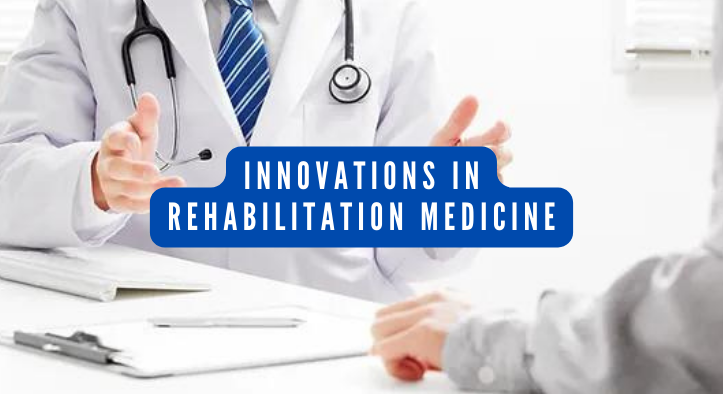Holistic Approaches in Rehabilitation Medicine: Empowering Patients on Their Journey to Recovery

Integrating Physical, Emotional, and Psychological Support for Optimal Rehabilitation Outcomes
Rehabilitation medicine, also known as physical medicine and rehabilitation (PM&R), focuses on restoring the functional abilities and quality of life of individuals who have experienced injuries, illnesses, or disabilities. In recent years, there has been a growing recognition of the importance of holistic approaches in rehabilitation medicine. These approaches aim to integrate physical, emotional, and psychological support to empower patients on their journey to recovery. This article provides an overview of the significance of holistic approaches in rehabilitation medicine and their impact on achieving optimal rehabilitation outcomes.
1. Understanding Holistic Approaches in Rehabilitation:
Holistic approaches in rehabilitation medicine recognize that the well-being of an individual extends beyond their physical condition. They emphasize the interconnectedness of the body, mind, and spirit in the healing process. By considering the physical, emotional, and psychological aspects of a patient’s life, rehabilitation professionals can provide comprehensive care that addresses the diverse needs and challenges they may face during their recovery.
2. Person-Centered Care:
Holistic rehabilitation medicine places the patient at the center of their care. It recognizes that each individual has unique goals, values, and preferences. By actively involving patients in the decision-making process, rehabilitation professionals empower them to take ownership of their recovery journey. Person-centered care fosters a collaborative relationship between the patient and the healthcare team, ensuring that the rehabilitation plan aligns with the patient’s individual needs and aspirations.
3. Integrating Physical and Emotional Support:
Physical rehabilitation is a fundamental aspect of rehabilitation medicine, focusing on restoring physical function and mobility. However, the emotional well-being of patients is equally important for successful recovery. Holistic approaches integrate emotional support into the rehabilitation process, acknowledging the emotional challenges, such as frustration, grief, or anxiety, that patients may experience. Rehabilitation professionals provide a supportive environment, offering counseling, stress management techniques, and resources to help patients cope with emotional difficulties and enhance their overall well-being.
4. Addressing Psychological Factors:
Psychological factors can significantly impact a patient’s rehabilitation outcomes. Holistic rehabilitation medicine recognizes the influence of psychological well-being on physical recovery and functional outcomes. Rehabilitation professionals work closely with psychologists and mental health specialists to address psychological factors such as depression, anxiety, trauma, or adjustment issues. By implementing strategies such as cognitive-behavioral therapy, relaxation techniques, and mindfulness practices, they aim to improve psychological resilience, reduce stress, and enhance the patient’s ability to engage in their rehabilitation program effectively.
5. Incorporating Complementary Therapies:
Holistic approaches in rehabilitation medicine often involve the integration of complementary therapies alongside traditional medical interventions. These therapies, such as acupuncture, massage therapy, yoga, or art therapy, can provide additional benefits in managing pain, reducing stress, promoting relaxation, improving mood, and enhancing overall well-being. Rehabilitation professionals collaborate with complementary therapy practitioners to tailor these interventions to individual patient needs, incorporating them into the comprehensive rehabilitation plan.
6. Support for Lifestyle Modifications:
Rehabilitation medicine recognizes the importance of lifestyle modifications in promoting long-term health and well-being. Holistic approaches emphasize education and support for patients in adopting healthy habits, such as proper nutrition, regular exercise, adequate sleep, and stress management techniques. Rehabilitation professionals provide guidance and resources to help patients incorporate these changes into their daily lives, empowering them to maintain their gains and prevent future injuries or relapses.
7. Interdisciplinary Collaboration:
Holistic rehabilitation medicine thrives on interdisciplinary collaboration. Rehabilitation professionals work closely with a multidisciplinary team of healthcare providers, including physical therapists, occupational therapists, psychologists, social workers, nutritionists, and other specialists. This collaboration ensures that patients receive comprehensive care that addresses all aspects of their rehabilitation needs. By sharing expertise and knowledge, healthcare professionals can provide a unified and coordinated approach to support the patient’s recovery.
Holistic approaches in rehabilitation medicine acknowledge the interconnectedness of physical, emotional, and psychological aspects in the healing process. By integrating physical, emotional, and psychological support, rehabilitation professionals empower patients on their journey to recovery. Through person-centered care, addressing psychological factors, incorporating complementary therapies, supporting lifestyle modifications, and interdisciplinary collaboration, holistic approaches in rehabilitation medicine maximize the potential for optimal rehabilitation outcomes. By considering the whole person and their unique needs, rehabilitation professionals can create a supportive and empowering environment that promotes healing, functional restoration, and improved quality of life.
